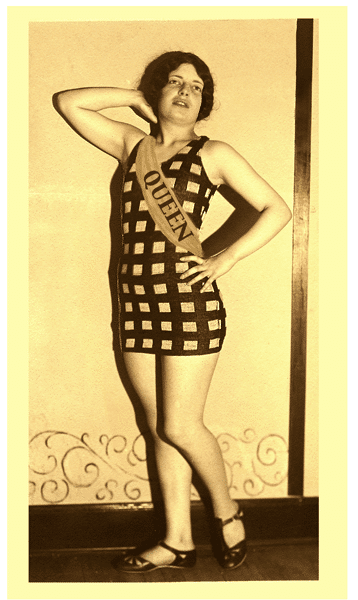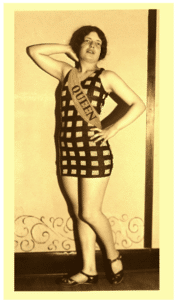Perfectionism: the Leading Fatal Disease among Women 18 to 100


by Cindy Ratzlaff and Kathy Kinney
Do you avoid getting together with friends because you’ve put on a few pounds? Do your knees shake as you obsess about the placement of every glass, dish, fork and morsel of food for holiday meals? Does a last-minute call from a friend stopping by send you dashing around the house cleaning and straightening up – even in the rooms they won’t see? Are you convinced that everyone else is leading a happier life than you? If you suffer from any of the above symptoms, you may have a case of the number one disease affecting women 18 to 100: perfectionism.
Perfectionism kills. It kills hope, fun, motivation and most of all it destroys self-esteem. Without intervention, perfectionism can rob you of time spent with people you love, any new skills that require a learning curve, the kind of adventures gained only through a leap of faith. When you spend a great deal of time worrying about what other people think of you, you waste the opportunity to live you were meant to live.
Life doesn’t have to be so hard. Happiness doesn’t have to be out of reach. A joy-filled life is your right, even if you are leading that life “imperfectly.” These three perfectionism combat strategies can help you shake off the invisible shackles of self-defeating thinking and reclaim happiness in your divinely imperfect life.
1. Stop the “I’ll be Happy When’s”
We tell ourselves we’ll be happy when we’re thinner, more educated, better connected, married (or divorced) or in possession of a bigger bank account. Reality TV alone should disavow us of that notion. We fear that being ourselves is just enough. But the truth is we’ll never be perfect. No one will be. There is never a perfect time or a perfect situation to be happy. There will always be something that could be more ideal or add to our chances of success. Waiting for the perfect time is essentially saying “no” to ourselves over and over again. Having the courage to be yourself and celebrate who you are will set you free. Let’s replace “I’ll be happy when” with “permission granted.”
2. Banish the Would’ve, Should’ve, Could’ve’s
It’s time to hit the reset button on regret. Many perfectionism addicts are hooked into a cycle we call the “would’ve, should’ve, could’ve” syndrome. Do these thoughts sound familiar?
- I would’ve been happier if I’d gotten a better education.
- I should’ve been much farther along in my career.
- I could’ve owned my own business if I’d dared.
We are supposed to learn from our missteps and be guided by our experiences. But when we turn hindsight into regret and create myths about our worthiness, we build thought patterns that become roadblocks to our current and future happiness. You are exactly where you are need to be, doing exactly what you are suppose to be doing to get where you want to go.
3. Retrain Your Brain to Understand the True Meaning of Beauty
Let’s talk about the elephant in the room for a moment. Many perfectionists harbor a fear that they are not beautiful, physically, mentally or emotionally. The things we do to cover up for our perceived lack of beauty are the very things that keep us from revealing our beauty to the world.
Beauty is a mighty loaded word, isn’t it? Beauty is something we crave, are ashamed of wanting and it is a concept with both a negative and a positive connotation. We want others to see us as beautiful. We believe it’s vain to think we’re beautiful. We fear others are more beautiful than we are. We think that if we were beautiful, life would be easier. The idea of beauty and our love-hate relationship with beauty can occupy so much of our conscious and unconscious thought patterns that it’s time to retrain our brains and reclaim the concept of beauty.
The dictionary definition of beauty is “a combination of qualities that pleases the aesthetic senses; a combination of qualities that please the intellect or moral sense.” The word perfect does not appear in the definition of beauty. We are all beautiful. Our unique combination of qualities, intellect and moral sense combine and present themselves in our beautiful and imperfect selves. Let’s vow to retrain our brains to recognize our pleasing combination of qualities and admit that we are beautiful.
Perfectionism is so insidious because it’s a habit. Habits are hard to break. Breaking a habit requires identifying the problem and committing to a solution. Breaking free of the grip of perfectionist thinking frees your creative mind to create real joy in your life. But breaking a habit takes practice. We think these three steps can aid you in “the practice of happiness” and loving your imperfectly perfect life.
PA Conference for Women speaker Cindy Ratzlaff was named to the Forbes “20 Best Branded Women on Twitter” list and Forbes Woman called her one of the “Most Influential Women On Entrepreneurship.” A contributor to Business Insider, writing on social media marketing strategy, her essays have appeared on Oprah.com, CNN.com and Wowowow.com. As vice president of brand marketing at Rodale, Ratzlaff pioneered a marketing methodology called The Marketing 360, now widely emulated throughout the industry. Her signature Marketing 360 campaign for the launch The South Beach Diet garnered her a spot on the prestigious Advertising Age Marketing 50 List. Her firm, Brand New Brand You, specializes in digital messaging and content marketing through social media. She co-authored two bestselling books on happiness and boundaries; “Queen of Your Own Life” and the newly released “Queenisms.” @BrandYou